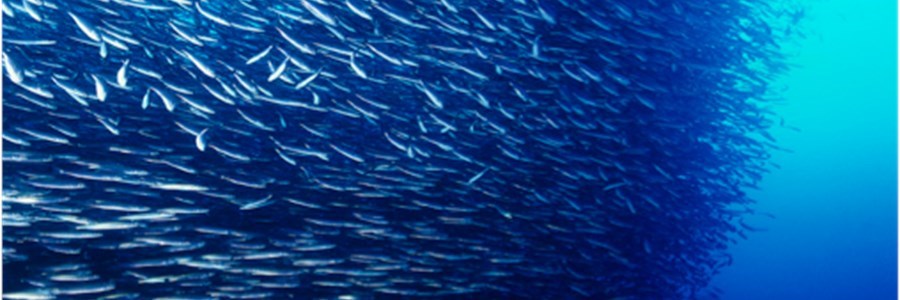Avances significativos en el logro de una pesca sostenible en la UE

La Comisión Europea (CE) ha lanzado su consulta anual sobre la fijación de las posibilidades de pesca para 2018. Como novedad, este año se acompaña de una Comunicación que, además de establecer los principios tradicionales que sustentan la propuesta de las CE para las cuotas pesqueras del Atlántico y del Mar del Norte (TAC) en 2018, ofrece una visión general de los progresos realizados hacia el logro objetivos de la Política Común de Pesca (PPC). Europêche está muy satisfecho con este nuevo enfoque, ya que proporciona a los ciudadanos europeos información objetiva de manera digerible. El sector también acoge con satisfacción las tendencias al alza en muchas poblaciones de peces y niveles de explotación sostenibles en toda Europa como lo revelan los datos científicos más recientes.
Concerning the progress made in implementing the CFP and achieving sustainable fisheries, the Communication positively reports that overall, overexploitation has declined drastically across all areas (with the exception of the Mediterranean and the Black Sea). The document also reflects an annual improvement in the number of TACs set at levels which can produce maximum sustainable yield (MSY), which represent now 61% of the total catches in the North-East Atlantic (44 stocks).
The analysis also shows the recovery of many stocks, since the average biomass in the North-East Atlantic was 35 % higher in 2015 than in 2003. It also reflects a better balance between fishing opportunities and fishing capacity since between 2007 and 2015 the capacity fell steadily, with the number of fishing vessels decreasing by 6 %, engine power by 14 % and tonnage by 24 %. The Communication also confirms the overall improved economic performance of the EU’s fishing fleet, registering an unprecedented net profit of € 770 million in 2014 (50 % increase over 2013). The sector contributed to the EU economy € 3.7 billion in 2014.
By contrast, the overall picture in the Mediterranean Sea calls for more sustained efforts. The positive note is that certain stocks are fished at sustainable rates and fleets are making progress. Bluefin tuna is reported to be at possibly the highest biomass levels ever recorded which led to a steady increase of the TAC by 25%.
The Communication states that many fisheries fall now under the landing obligation. The EC commits to make use of available tools to mitigate choke species effects and marketing of undersized catches.
President of Europêche, Javier Garat stated: "Many stocks have recovered and are now delivering increased sustainable catches; this confirms that EU fisheries management has been successful. This also proves that there was no need for the introduction of radical measures such as the landing obligation, which is being a nightmare for fishers, particularly in the North Sea and South Western Waters for demersal fisheries. In order to find viable solutions, we welcome the EC readiness to scrap, where possible, TACs that may be conflicting with the implementation of the discard ban. However, given that the phasing-in of the most problematic species has been scheduled for 2019, we encourage the EC and Member States to use all available measures enshrined in the CFP such as realistic uplifts in quota and close monitoring and frequent choke analyses.”
Europêche warns that the choke species impact is still unknown and cannot be underestimated since it would prevent fishers to fully utilise their fishing opportunities and lead to significant economic losses which is in stark contradiction with Art. 39 TFUE[1] and Art. 16.1 CFP[2].
Finally, concerning the proposals for 2018 TACs, the EC intends to propose these in line with achieving MSY exploitation rates the next year and encourage the Council to align its decisions with this approach.
Garat continued: “The sector agrees with the EC on the need to achieve the maximum number of stocks at MSY levels as soon as possible. However, this cannot be done at any cost and without taking into due consideration socio-economic factors. Scientists offer several scenarios in their annual advice in order to achieve MSY levels in 2018, 2019 or 2020. We call upon the EC and the Council of Fisheries Ministers to set TACs for every fishery according to the best scenario that guarantees a sustainable fishing activity from an environmental, social and economic point of view. This would allow to progressively achieving the CFP objectives within the legal time period given, i.e. 2020.”
As a closing remark regarding the Mediterranean, Garat stated: “The recent EC proposal for a multiannual plan for small pelagic stocks in the Adriatic would set a devastating scenario for the sector since the measures proposed would cause by 2021 a decrease in sardine and anchovy catches of +/- 25-30%, in revenue of +/- 25% and in employment of +/- 10%. To stress the gravity of the problem, the Communication states that overall employment continues to decline. We regret that this proposal did not follow the advice adopted by consensus within the Mediterranean Sea Advisory Council (MEDAC) which proposed reasonable and effective management measures, less damaging for the industry.”
ENDs
Europêche represents the fisheries sector in Europe. Currently, the Association comprises 15 national organisations of fishing enterprises from the following 10 EU Member States: DE, DK, ES, FR, IT, MT, NL, LV, PL, UK.
Press contacts:
Daniel Voces, acting Managing Director of Europêche: +32 2 230 48 48 daniel.voces@europeche.org
[1] COM(2017)368 final
[1] 2017-04_STECF
[1] Art. 39 of the Treaty stipulates the objective “to ensure the optimum utilization of the factors of production, and thus to ensure a fair standard of living for the fisheries community by assuring the availabilities of supplies”
[2] Fishing opportunities are allocated to Member States ensuring “relative stability of fishing activities of each Member State for each fish stock or fishery”
Sources: Europeche
Attachments:
Tags: Oportunidades de pesca, TAC, MSY, obligación de desembarque, prohibición de descarte, ce, consejo, mediterráneo, Mar del Norte